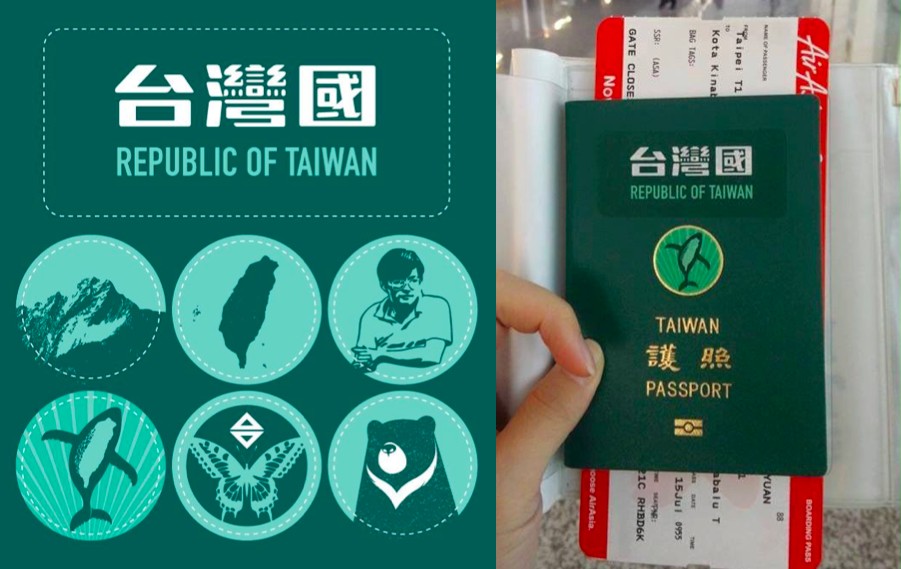The Taiwanese Ministry of Foreign Affairs has drafted an amendment to the regulations which enforce its passport law, in order to explicitly prohibit stickers from being attached to the covers of Republic of China (ROC) passports.
In August, supporters of Taiwan independence started a campaign to redesign their Taiwanese passport covers with stickers, sparking heated discussions online and objections from the government.
The independence supporters advocate the use of “Republic of Taiwan” stickers to cover up the words “Republic of China,” and want to see stickers depicting iconic Taiwanese landmarks being employed to cover the national emblem.

On Monday a draft amendment to the “Enforcement Rules of the Passport Act” was proposed and posted on the online gazette of the Executive Yuan – Taiwan’s executive branch. The set of Enforcement Rules is an administrative order affecting how the law is exercised.
It translates as: “Passports cannot be altered in any way or stamped, as specified in Article 5 (2) of the Act, which means any activity altering the passport’s cover, back and the inside pages is not allowed.”

The Facebook page “Taiwan Passport Sticker” which promotes the use of the stickers observes that the amendment has yet to go into effect, but suggests that its influence could be worrying.
“Although the draft amendment has not yet listed any punishment, we are afraid that using an administrative order in this way may have infringed freedom of expression, as protected by the constitution.”
“We despise the Ministry of Foreign Affairs’ action, and we will urge the members of the Legislative Yuan to use their power to review the enforcement rules. They should demand the Ministry of Foreign Affairs abolish or amend any inappropriate rule,” according to a post appearing on the page.
The page’s author or authors also criticised the action as a stunt by the ruling Kuomintang Party in advance of the presidential election in January 2016, to “show loyalty to their masters in Beijing” and to demonstrate that the officials were determined to defend the “One China” policy.

It added that during the anti-China protests in Vietnam in 2014, the Taiwanese Ministry of Foreign Affairs had given out “I am from Taiwan” stickers – in both English and Vietnamese – to Taiwanese people in Vietnam.
“The officials and the people were determined to show the world that the Taiwanese should not be mistaken for Chinese, in order not to be affected by anti-Chinese sentiments.”
“Hundreds of thousands of Taiwanese have used passports with ‘Republic of Taiwan’ stickers attached to successfully cross many borders in the world, which shows that having the ‘Republic of China’ on the passport is not important at all, it can be covered up, and the advantages outweigh the disadvantages.” continued the post.

The “Law Governing the Legislative Yuan’s Power” states that administrative orders can go into effect after they are sent to the Legislative Yuan for future reference. However, if members of the Legislative Yuan think an order is against the law, 15 members may sign a petition to start a review of the amendment. The review should be finished in three months. If it is not completed in that time, the administrative order will go into effect.
But since the term of the current Legislative Yuan is due to end on January 31, 2016, less than three months from the date on which the new order was submitted, if it was forced into review status by members of the Legislative Yuan, it would have to be re-submitted after new members are elected next year and take office.
